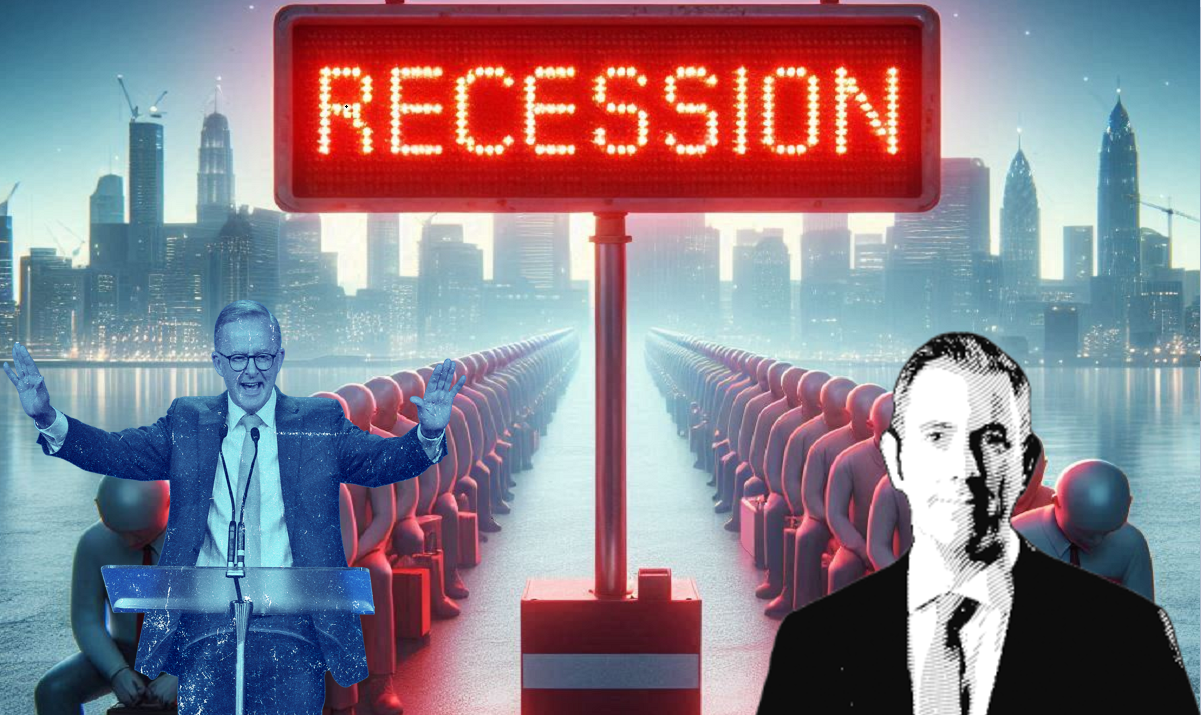Revealed: Chances of interest cut before Xmas – realestate.com.au

- by Admin
- October 17, 2024

Aussies hoping for interest rate relief before Christmas may have to wait a lot longer after a new record slashed the chance of a cut by the Reserve Bank.
The Commonwealth Bank, which has held strongly onto forecasts of a rate cut before 2024 ends, was among the first financial institutions to concede that new data showing Australia’s fresh record employment participation rate “reduces the odds of a December RBA rate cut”.
Latest Australian Bureau of Statistics data released Thursday found employment participation nudged 0.01 percentage points higher to hit a record 67.2 per cent in September – with over 64,100 more people finding work during the month – the vast majority (51,600) of which was full-time.
NEWS: Surprise twist in Australia’s hottest house
First look inside iconic hotel’s $15m Olympic makeover
Backlash: How MPs fuel housing crisis
Commonwealth Bank Head of Australian Economics Gareth Aird
“This is a reversal of August where all of the job gains were in the part‑time space,” CBA Head of Australian Economics Gareth Aird said, with August also seeing a lower rise of 42,600.
“Our call for the RBA to commence normalising the cash rate in December with a 25bp rate cut looks less likely as a result of (Thursday’s) jobs figures,” he said in his latest update.
“But,” he added, “we stick with it given our expectations for the September quarter CPI and Q3 24 national accounts”.
The sheer level of jobs readily available plus financial pressures from the higher cost of living were driving the increase in employment participation, Mr Aird said.
“Jobs growth has been remarkably strong. But a rising participation rate has meant that the unemployment rate has essentially trended sideways over the last few months.”
“The participation rate clocked another all‑time high in September.”
Australia’s unemployment rate is holding at 4.1 per cent.
Homeowners hoping for interest rate relief before Christmas may have to hold out a bit longer. Picture: NCA NewsWire /Brenton Edwards
ABS head of labour statistics Bjorn Jarvis said “with employment rising by around 64,000 people and the number of unemployed falling around 9,000, the unemployment rate remained at 4.1 per cent, where it has generally been over the past six months”.
“Employment has risen by 3.1 per cent in the past year, growing faster than the civilian population growth of 2.5 per cent. This has contributed to the increase in the employment-to-population ratio by 0.1 percentage point, and 0.4 percentage points over the past year, to a new historical high of 64.4 per cent.”
“The record employment-to-population ratio and participation rate shows that there are still large numbers of people entering the labour force and finding work in a range of industries, as job vacancies continue to remain above pre-pandemic levels.”
He said “there are still around 93,000 fewer unemployed people than there were just before the start of the COVID-19 pandemic, when the unemployment rate was at 5.2 per cent”.
Men were increasing their hours of work more than women, ABS found, 0.7 per cent vs -0.3 per cent, with male employment growing at double the pace of females (0.6 per cent vs 0.3 per cent).
Employment participation has surged since the start of the pandemic when the unemployment rate was at 5.2 per cent. Picture: NCA NewsWire / Dylan Coker
Mr Aird said “we readily admit that the labour market overall has held up better than we anticipated.”
“Overall, the recent labour market data does not strengthen the case for the RBA to commence normalising the cash rate this calendar year. Indeed at the margin it weakens it.”
“That means the conviction we have in our call for a 25bp December cut to the cash rate has dipped today. But while the risk has firmly shifted to a later start date for the first reduction in the cash rate, we stick with our call.”
Mr Aird’s justification for continuing to hold to a December rate cut was CBA expected Q3 24 CPI to “indicate that the disinflation process is happening more quickly than the RBA anticipates. And we think the consumer response to the Stage 3 tax cuts will be more muted than the RBA’s forecasts imply”.
“As a result, we stick with our base case for a 25bp rate cut at the December Board meeting. But we acknowledge that the Board will feel less compelled to start the process of normalising the cash rate whilst the labour market data remains robust.”
The Latest News
-
December 22, 2024Fearless teen debutant touches down for Boxing Day
-
December 22, 2024Aussie Ashes prep ramps up with trans-Tasman series finale: ODI LIVE
-
December 22, 2024The remarkable Lleyton Hewitt feat Cruz Hewitt can emulate after being handed 2025 Australian Open wildcard
-
December 22, 2024Forgotten man removes himself from Test talk
-
December 22, 2024Tiger Woods’ son Charlie makes a hole-in-one in the final round of the PNC Championship – Australian Golf Digest





